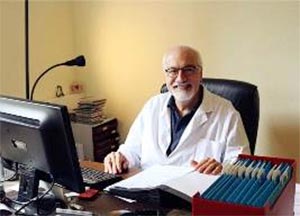Welcome to Autism Medicus
Dear patients, dear parents,
we look forward to welcoming you back to our practice in person.
- It is now possible to make appointments in our practice again, but subject to certain corona-related hygiene measures:
- When entering the practice, the hands must be disinfected.
Mouth and nose protection must be worn during the stay in the practice.
Children must be accompanied by two adults. a corona test for adults is mandatory
- Dr. Faraji and Team
This homepage shall provide you with qualified information on the topic of modern therapeutic options in the treatment of the autistic spectrum disorder and ADD/ADHD.
It is also meant to introduce you to my practice and the possibilities of offered treatments.
With my medical practice as the first professional contact point, I have fulfilled the desire of many families with affected loved ones, to carry out biomedical check-ups and treatments. Now many patients from abroad travel long distances to come to us. But it is obvious to me that much more pioneering work needs to be done.
S. Faraji, M.D., Wetzlar (Germany)
Practice for autism therapy

How important is early detection?
It is undisputed that for children from the autism spectrum, the greatest possible success can only be achieved with very early and consistent therapy.
Unfortunately, therapies are usually started relatively late (on average in the 5th year of life). In my opinion, a lot of crucial time for the diagnosis (if this is done at all) and the initiation of a necessary therapy is lost.
The reasons for this are:
- the lack of information in the medical profession
- that autism is still a rare disease and is therefore not always considered in developmental disorders
- By definition, autism manifests itself “before the age of three”. Unfortunately, this statement is often misinterpreted to mean that a child should only be three years old for the diagnosis
- that many families have to wait months for an appointment for examinations and a diagnosis
- many centers insist on inpatient admission over several days in order to supposedly be able to observe the patient better. A measure that does not particularly motivate parents to go there
- the general layman’s idea of “the autistic child” is that it “isolates itself” and “doesn’t want to have anything to do with other people”. I call that “Hollywood Autism”. A phenomenon that does not represent the clinical picture and misleads many parents, but also experts, especially if the patient is clingy and seeks body contacts.
Even if the parents can find out much more conscientiously because of the internet and the ever better flow of information compared to a few years ago, the symptoms are often not directly assigned to the clinical picture. They notice the developmental disorder especially when they have older children for comparison and describe it to the pediatrician, who in turn “calms down” the “overly anxious” parents. Often, something happens only when the parents of the educators or occupational therapists concerned , neighbours or strangers to be raised on suspicion of autism.
What do to after the diagnosis?
Before something is done for the affected child, the parents have to deal with the new situation. Working through such a stroke of fate is a process for parents that consists of several phases and which all affected parents go through. The only difference is that the duration and intensity of the individual phases can be very different and that they can be repeated different times.
According to my observations, the following phases will occur, not always in this order or so precisely delimited:
- Dont want to believe it
- Angry reaction: “Why me? Why us?”
- Determination: “We can do it!”
- Resignation: Giving up, resigning to the fact
- repress
- Go to “normality”
Because the children cannot help themselves, they are, however, urgently dependent on the therapy offers that their parents can (can) use for them. However, in many cases these are left to chance, such as where you live or reports from other parents about therapies that have helped their children.
The main points of contact for parents seeking help are:
- pediatricians
- Early support for life coaching
- Autism therapy centers of the federal association
- Internet, individual searches

